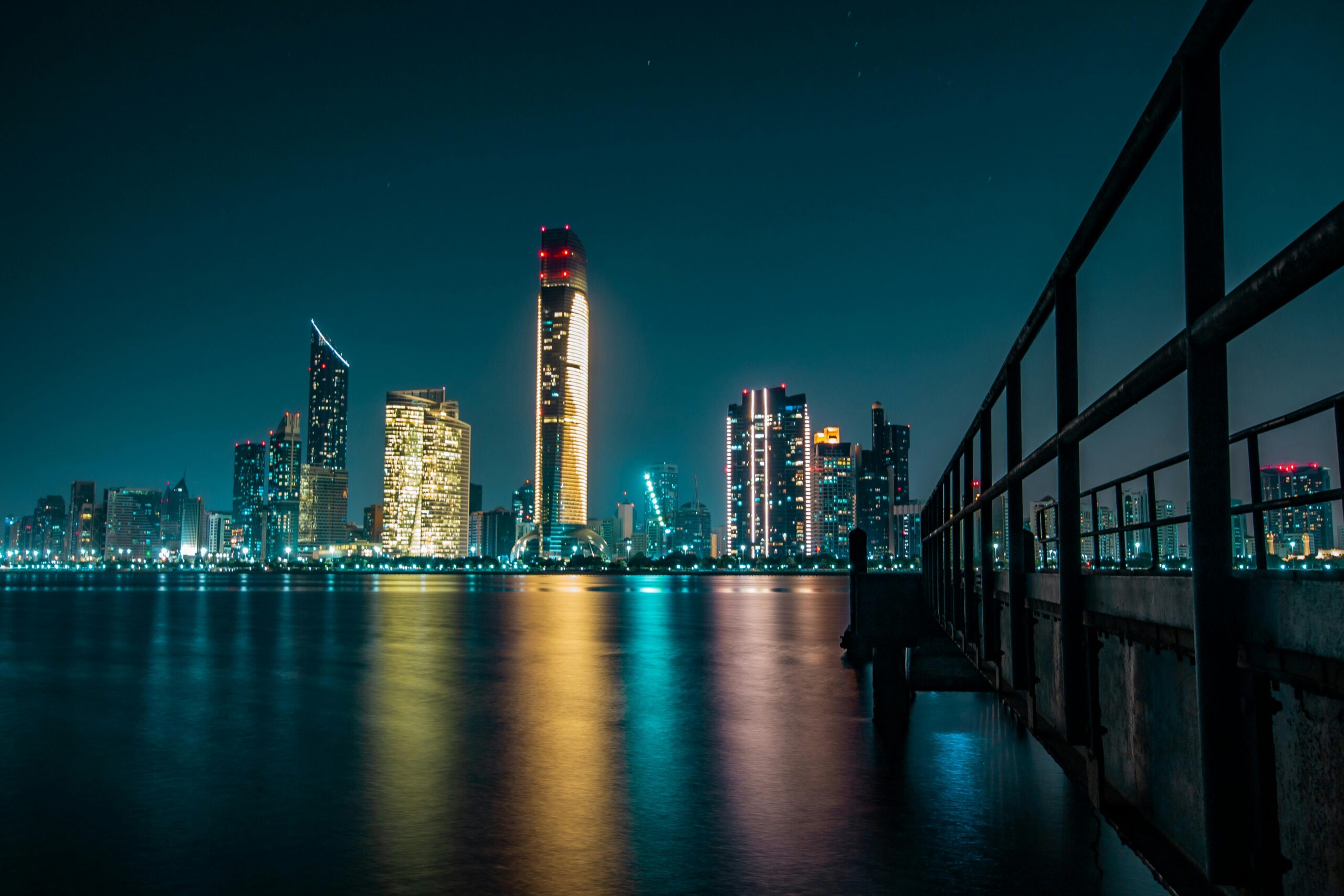Introduction to Safety Rankings
In an increasingly interconnected world, the concept of safety has become a paramount concern for residents and travelers alike. Global safety rankings serve as essential indicators, evaluating urban environments based on their safety performance. These rankings, which assess various factors, provide crucial insights into crime rates, emergency services, social stability, and more. Understanding the significance of these measurements not only aids individuals in making informed decisions but also highlights the commitment of city officials to enhance public safety.
One of the primary criteria considered in safety rankings is crime rates. This includes various forms of crime, from violent offenses to property crimes, allowing for a comprehensive understanding of how secure a city truly is. Lower crime rates typically correlate with a safer living environment, ultimately creating a more attractive destination for tourists and potential residents. Additionally, the effectiveness and responsiveness of emergency services play a crucial role in these assessments. Cities that boast well-trained, adequately funded police and fire departments generally inspire greater confidence among their citizens.
Another significant factor in determining a city’s safety ranking is social stability. This encompasses aspects such as community cohesion, economic stability, and the presence of social welfare programs. Cities that foster strong social bonds among their residents often experience lower levels of conflict and crime. Furthermore, these rankings serve as important tools for planners and policymakers, enabling them to identify areas that require improvements and allocate resources effectively. As we explore the findings of the latest rankings, it becomes evident that cities striving to be recognized as the safest city in the world are dedicating themselves to enhancing the overall quality of life for their inhabitants.
Abu Dhabi’s Ranking Explained
Abu Dhabi has earned the prestigious title of the safest city in the world for 2025, achieving an impressive overall safety score of 97.73. This score stands out prominently when compared with other global cities, reflecting the multiple facets of safety that contribute to the city’s secure environment. The ranking is the result of an extensive assessment conducted by experts, utilizing various indicators that measure the aspects of safety within urban areas. These indicators include crime rates, emergency services response times, healthcare quality, and infrastructure resilience.
The methodology behind Abu Dhabi’s ranking involved a thorough analysis of data collected from numerous sources, both governmental and independent. By examining the city’s crime statistics, law enforcement efficiency, and community engagement, the evaluators were able to determine a comprehensive safety rating. Furthermore, the city’s proactive measures in public safety, including surveillance and community programs, also played a vital role in achieving its high score. Abu Dhabi’s commitment to maintaining safety has resulted in a harmonious living environment, where residents can enjoy peace of mind.
In comparison with other cities, Abu Dhabi’s score significantly surpasses many urban centers that are often considered safe. The safety measures implemented in the city not only prevent crime but create a culture of trust among citizens and visitors alike. This fosters an overall sense of community which is essential for any city aspiring to be a leader in safety globally. Cities worldwide are increasingly challenged to enhance their security measures in light of evolving threats, making Abu Dhabi’s achievement even more commendable. It sets a benchmark for others, demonstrating what can be accomplished through concerted efforts in urban safety initiatives.
Key Factors Contributing to Safety in Abu Dhabi
Abu Dhabi has achieved recognition as the safest city in the world for 2025, a status attributed to several key factors that collectively contribute to its impressive safety score. One of the most significant elements is its remarkably low crime rates. The United Arab Emirates, in general, boasts minimal instances of violent crime, and Abu Dhabi specifically reflects this trend with an environment that enables residents and visitors to feel secure at all times.
Another vital component is the effective law enforcement systems in place. The Abu Dhabi Police force operates with a high level of professionalism, ensuring the community is both monitored and protected. Regular training sessions for law enforcement personnel, combined with the implementation of best practices modelled after leading international standards, have resulted in a robust policing structure. This proactive approach further deters potential criminal activity, which significantly enhances the sense of safety among the populace.
Community engagement also plays a crucial role in fostering security within Abu Dhabi. The government encourages a collaborative relationship between law enforcement and residents, promoting public awareness programs and initiatives that seek to educate the population on safety measures and civic responsibility. This strong community bonding contributes to a well-informed public that actively participates in maintaining its safety, leading to the overall perception of Abu Dhabi as one of the safest cities globally.
Furthermore, the integration of advanced technology in crime prevention and public safety efforts has propelled Abu Dhabi to the forefront. From surveillance cameras to smart policing initiatives, the application of cutting-edge technology serves to increase response times and effectively mitigate risks. These elements illustrate how Abu Dhabi organizes its resources in a manner aimed at ensuring safety, thereby reinforcing its status as the safest city in the world.
Comparison with Other Global Cities
When evaluating the status of Abu Dhabi as the safest city in the world for 2025, it is essential to compare it with other global cities known for their exemplary safety records. Cities such as Tokyo, Singapore, and Copenhagen are frequently cited among the safest environments worldwide, each with unique strengths contributing to their safety rankings.
Tokyo, renowned for its low crime rate, benefits from advanced technology and a highly efficient police force. The city’s infrastructure is well-maintained, and community involvement plays a crucial role in ensuring safety. These elements create an environment where residents feel secure, yet its sheer size and population density can sometimes present challenges not found in smaller cities.
Singapore consistently ranks high due to its stringent laws and effective law enforcement. The city’s comprehensive surveillance system and community engagement initiatives promote a sense of safety among its citizens. However, the strict regulations can be viewed by some as an infringement on personal freedoms, which contrasts with the more lenient, yet still secure, atmosphere of Abu Dhabi.
Copenhagen is particularly lauded for its focus on social equality and community well-being. The city fosters a strong sense of neighborhood accountability, reducing crime rates significantly. While this approach enhances safety through cooperation and rapport among residents, Abu Dhabi distinguishes itself with a focus on infrastructure that supports safety, including exceptional emergency response systems and healthcare services.
In comparing these cities to Abu Dhabi, it becomes clear that while many cities have commendable safety features, Abu Dhabi’s blend of cultural heritage and modern advancements creates an environment that consistently promotes security. The commitment to safety through both policy and community initiatives ensures that Abu Dhabi maintains its standing as the safest city in the world.
Crime Rates and Law Enforcement in Abu Dhabi
Abu Dhabi has consistently been recognized as the safest city in the world, and this reputation is firmly supported by impressive crime statistics. Over recent years, the city has demonstrated a significant decrease in crime rates, attributable to various factors, most notably effective law enforcement strategies and community engagement initiatives. The types of crime that are often reported in urban environments, such as theft, drug-related offenses, and violent acts, have shown a marked decline in frequency within the capital.
The Abu Dhabi Police plays a crucial role in maintaining public safety and ensuring that the crime rate remains at a minimal level. This law enforcement agency employs a proactive approach to crime prevention, including regular patrols, community policing, and the utilization of advanced technology to monitor crime hotspots. Additionally, the police force encourages citizens to participate in crime prevention efforts, further fostering a sense of communal responsibility that contributes to the overall safety of the city.
Statistics indicate that property crimes, in particular, have seen a notable reduction, with the incidence of theft and burglary down by a significant percentage compared to previous years. Furthermore, violent crimes remain exceedingly rare, reinforcing Abu Dhabi’s position as a haven for families and expatriates alike. The implementation of stringent laws and the effectiveness of the judicial system also dissuade potential offenders, thereby deterring crime and solidifying Abu Dhabi’s status as the safest city in the world.
Public trust in the authorities is crucial to achieving these low crime rates. The Abu Dhabi Police routinely engages with the community through initiatives such as public awareness campaigns and educational programs, building strong relationships and ensuring transparency in law enforcement efforts. It is this symbiotic relationship between the citizens and law enforcement that solidifies Abu Dhabi’s claim to being not just a safe city, but the safest city in the world.
Cultural and Social Aspects of Safety
Abu Dhabi has earned its reputation as the safest city in the world, a title attributed not only to its robust law enforcement but also to deep-rooted cultural and social elements. Community cohesion plays a pivotal role in fostering safety. Residents often engage in neighborhood watch programs, which enhance vigilance and strengthen bonds among community members. This proactive approach discourages crime and promotes an environment where individuals look out for one another.
The emphasis on social programs and initiatives further cements Abu Dhabi’s status as one of the safest cities globally. Various government and non-governmental organizations work tirelessly to implement programs aimed at educating the public about safety and security. Workshops focusing on conflict resolution, emergency response, and personal safety awareness empower citizens, contributing to a culture of vigilance and responsibility. Furthermore, the availability of resources for mental health support reinforces that community wellbeing is integral to safety.
Another crucial aspect to consider is the cultural diversity evident in Abu Dhabi. The city is home to a significant expatriate community, which enriches its social fabric. This cultural melting pot encourages tolerance and understanding among individuals from different backgrounds. The melding of various traditions and customs fosters collaboration and acceptance, significantly reducing the likelihood of conflict. Such a harmonious coexistence among diverse groups facilitates a shared commitment to maintaining safety standards, thereby enhancing residents’ perceptions of security.
In essence, the safest city in the world is characterized not only by its structural integrity and law enforcement efficacy but also by a collective cultural identity that prioritizes community well-being. The interdependence of social programs, community cohesion, and cultural diversity underscores the multidimensional approach that Abu Dhabi employs to ensure a high standard of safety for all its residents.
Technological Innovations in Enhancing Safety
Abu Dhabi has positioned itself as the safest city in the world through the integration of advanced technological innovations aimed at bolstering urban safety. Central to this transformation are the smart city initiatives that utilize cutting-edge technology to create a secure environment for residents and visitors alike. These initiatives involve digital infrastructure that enables seamless communication and efficient resource management, enhancing overall urban safety.
One of the key components of Abu Dhabi’s safety framework is its sophisticated surveillance systems. The city is equipped with a vast network of high-definition cameras strategically placed across various public spaces. These cameras not only monitor traffic but also contribute to crime prevention and detection. The real-time data collected by these surveillance systems allows law enforcement agencies to respond swiftly to incidents, ensuring a prompt and effective reaction, which is crucial in maintaining the city’s status as the safest city in the world.
In addition to surveillance, Abu Dhabi has emphasized the development of innovative emergency response technologies. The implementation of a comprehensive emergency management system allows for better coordination during crises. This system integrates data from various sources, enabling emergency services to assess situations rapidly and allocate resources effectively. Furthermore, enhanced mobile applications are available to citizens, providing vital alerts and information regarding safety protocols, which fosters a culture of preparedness among the population.
The integration of artificial intelligence and machine learning also plays a pivotal role in enhancing safety in Abu Dhabi. Predictive analytics can identify potential threats before they escalate, allowing city officials to take preemptive measures. These technology-driven strategies demonstrate how Abu Dhabi leverages innovation to secure its status as the safest city in the world, ultimately creating a safer environment for everyone within its borders.
The Role of Government Policies
The government of the United Arab Emirates, particularly in Abu Dhabi, has implemented a series of strategic policies aimed at establishing the emirate as the safest city in the world. Recognizing safety and security as paramount for economic stability and social harmony, the UAE leadership has prioritized fiscal investments into safety programs that benefit both residents and visitors. These investments encompass a wide range of initiatives, including extensive funding for law enforcement agencies, technological advancements in surveillance systems, and community outreach programs designed to engage citizens in safety discussions.
Moreover, legislation aimed at crime reduction has played a crucial role in enhancing Abu Dhabi’s safety perception. The government has introduced strict laws addressing various criminal activities, from petty crimes to more serious offenses. Such legislation is complemented by rigorous enforcement measures, ensuring that violators are held accountable, which further promotes a culture of lawfulness. This approach has been instrumental in significantly lowering crime rates, thus bolstering the reputation of Abu Dhabi as one of the safest cities globally.
In addition to investment and legislation, initiatives aimed at fostering public trust in authorities are critical for maintaining a secure environment. The Abu Dhabi government actively promotes transparency and accessibility, allowing citizens to voice concerns and report issues without fear of retribution. Community policing programs encourage collaboration between law enforcement and local communities, thereby enhancing the effectiveness of safety measures. Furthermore, public awareness campaigns educate residents about safety practices, contributing to a collective responsibility towards crime deterrence. Overall, these comprehensive efforts reflect the commitment of the UAE government to create and sustain an environment where Abu Dhabi can proudly claim its title as the safest city in the world.
Future Outlook for Safety in Abu Dhabi
As Abu Dhabi continues to solidify its reputation as the safest city in the world, the future outlook for safety measures in the emirate appears promising. The government of Abu Dhabi has engaged in a proactive approach to enhance security and public safety through various innovative projects and initiatives. By investing significantly in technology and infrastructure, the city is poised to maintain its low crime rates and provide a safe environment for residents and visitors alike.
One of the key components of Abu Dhabi’s safety strategy is the implementation of smart city technologies. These technologies aim to leverage data analytics and Internet of Things (IoT) devices to monitor urban environments efficiently. The city plans to integrate advanced surveillance systems to ensure the wellbeing of its citizens, thereby further asserting its position as a leading contender for the title of safest city globally. Such systems will be supplemented by rapid response teams that can address incidents effectively, reflecting Abu Dhabi’s commitment to safety and security.
Additionally, the emirate is considering sustainability plans that align with its vision for a greener future. The incorporation of renewable energy sources within public safety projects is a critical aspect of Abu Dhabi’s long-term strategy. By adopting sustainable practices while ensuring safety, the city demonstrates that it can achieve a balance between urban development and environmental conservation, which is vital for residents’ quality of life.
As the population of Abu Dhabi continues to grow, so too does the necessity for effective policy frameworks governing public safety. To address potential threats, the city is committed to ongoing training for law enforcement and emergency response personnel, equipping them with the skills needed to adapt to new challenges. By prioritizing safety through innovative methodologies and sustainability, Abu Dhabi is on a clear path to securing its future as the safest city in the world.







